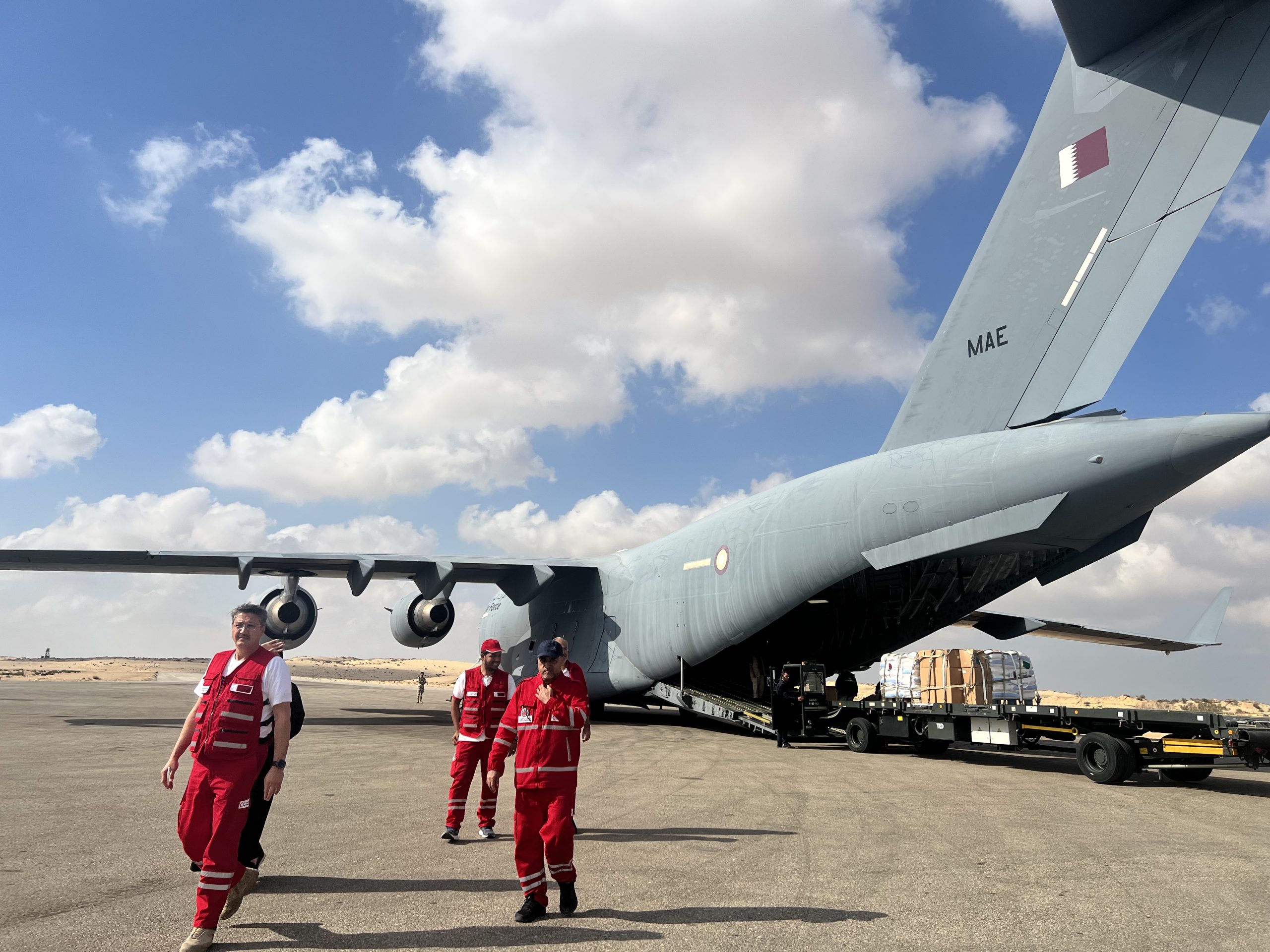Israel’s bloody airstrikes on Sunday prompted more people to evacuate to the Rafah border, as Israeli tanks continued to infiltrate the territories.
Qatar has sent three aircraft carrying a total of 135 tons of aid, including shelter supplies, provided by the Qatar Fund for Development, to Al Arish in Egypt, awaiting entry to the besieged Gaza Strip.
Monday’s aid brings the total number of Qatar’s aid-carrying planes to a total of 57, collectively carrying a staggering 1,777 tons of humanitarian aid.
The Israeli occupation forces have killed over 21,800 Palestinians since the start of the genocide in Gaza on October 7, according to the latest figures from Palestine’s health ministry.
The Israeli bombardment of Gaza has left the enclave in ruins, with 60% of its infrastructure severely damaged or destroyed, and over 80% of Gaza’s population, nearly 1.9 million people, now displaced, amid acute shortages of food, clean water, and medicines.
Currently, aid is trickling into Gaza through the Rafah crossing from Egypt, a route ill-suited for handling large-scale deliveries.
This has led to significant delays, with trucks having to navigate a 40km detour via Egypt’s border with Israel, creating more complications.
On December 13, Qatar pledged $50 million at the Global Refugee Forum in Geneva as an initial humanitarian aid package for Gaza.
On December 18, Sheikh Tamim donated QAR 100 million (around $27.5 million) to back the local “Palestine Duty” charity campaign. The campaign gathered a total of QAR 200,048,750 (around $55 million) in donations for Gaza.
Israeli massacres in Gaza continue
Israel continued to pummel the enclave on Sunday, heavily targeting al-Maghazi and al-Bureij in central Gaza, killing 10 Palestinians in a single residence.
The bloody airstrikes on Sunday prompted more people to evacuate to Rafah, located on the border with Egypt, as Israeli tanks continued to infiltrate the territories.
The regime’s Prime Minister Benjamin Netanyahu declared that the war in Gaza was reaching its peak, emphasising Israel’s necessity to regain control of Gaza’s border with Egypt.
This area is currently crowded with Palestinians who have sought refuge from the widespread Israeli raid in other parts of the enclave.
To take over the border once again could essentially constitute a de facto reversal of Israel’s 2005 withdrawal from Gaza, prompting fresh uncertainties about the enclave’s future.







